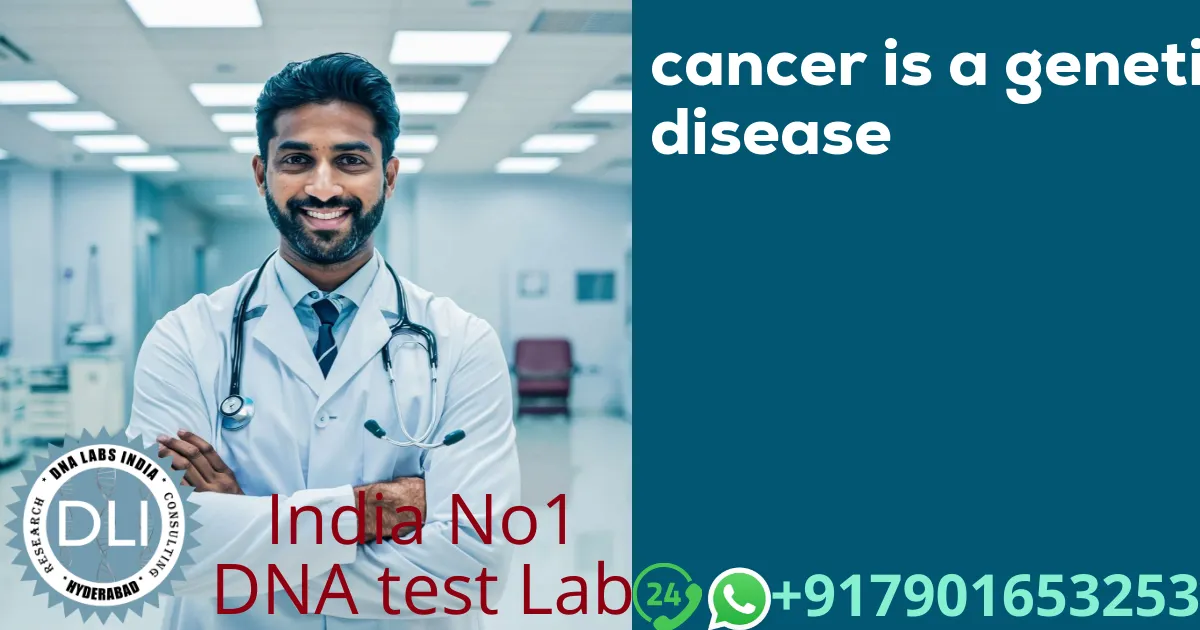Cancer is a Genetic Disease
While genetics can play a role in the development of cancer, it is not the sole cause of the disease. Many factors, including environmental and lifestyle factors, can also contribute to the development of cancer. It is thought that a combination of genetic and non-genetic factors can lead to the development of cancer. Some people may have a genetic predisposition to cancer, meaning they have a higher likelihood of developing the disease due to inherited genetic variations. However, this does not mean that they will definitely develop cancer. Many people with a genetic predisposition to cancer never develop the disease, while others with no known genetic risk factors may develop cancer. It is important to note that cancer is a complex and multifaceted disease, and the precise causes of cancer can vary from one person to another.
What is a Genetic Disease ?
A genetic disease is a health condition that is caused by a change or mutation in an individual’s DNA. This can result in the production of abnormal proteins or enzymes, or a deficiency of certain proteins or enzymes, which can lead to a wide range of health problems. Some genetic diseases are present at birth, while others may not appear until later in life.
There are many different types of genetic diseases, ranging from single gene disorders, such as cystic fibrosis and sickle cell anemia, to more complex conditions that are caused by the interaction of multiple genes, such as diabetes and cancer. Some genetic diseases are inherited from a person’s parents, while others can be caused by new mutations in an individual’s DNA.
Genetic testing can be used to diagnose genetic diseases, and there are many treatments available for genetic conditions, including medications, therapies, and surgery. However, the treatment options and prognosis for a genetic disease can vary widely depending on the specific condition.
Hereditary Cancer
Hereditary cancer is cancer that is caused by inherited genetic mutations. These mutations can be passed down from a person’s parents and increase the risk of developing certain types of cancer. Hereditary cancer tends to run in families, and people with a family history of the disease may have a higher risk of developing cancer themselves.
There are several types of cancer that can have a hereditary component, including breast, ovarian, and colorectal cancer. People with a family history of these cancers may be at an increased risk of developing the disease, and may need to be monitored more closely or undergo genetic testing to assess their risk.
If you are concerned about your risk of developing hereditary cancer, it is important to speak with your healthcare provider. They can assess your risk based on your family history and recommend any necessary screenings or genetic testing. It is also important to adopt a healthy lifestyle, including maintaining a healthy diet and exercise routine, to reduce your risk of developing cancer.



